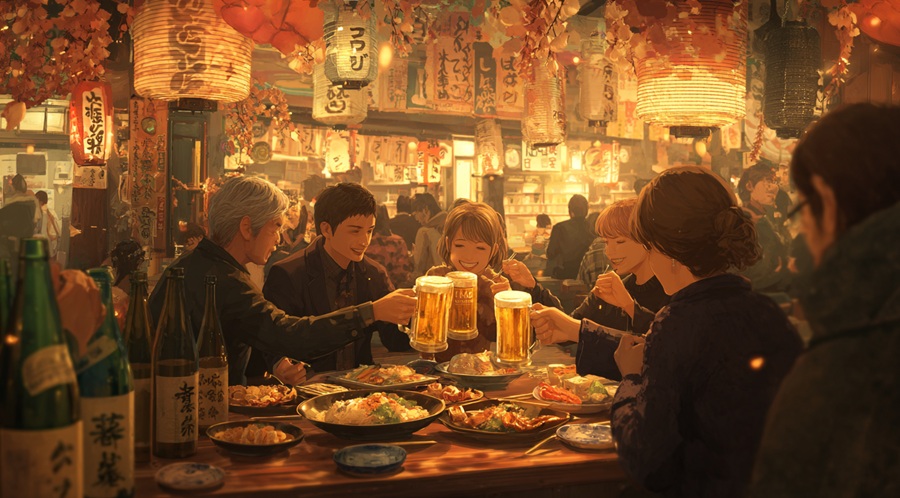
Year-End Party
Japanese Name:
忘年会
Romaji Name:
bounenkai
Description
↓↓
Bōnenkai is a traditional Japanese year-end party, typically held in December, where friends, family, coworkers, or organizations come together to celebrate the end of the year and reflect on the past year. The term “bōnenkai” translates literally to “forget the year party,” with (bō) meaning “forget,” and (nen) meaning “year.” This event is a way to let go of the stresses and hardships of the year, celebrate achievements, and enjoy each other’s company before the start of the new year.
History
↓↓
Bonenkai is a Japanese tradition of holding year-end parties to forget the troubles of the past year.
The custom dates back to the Edo period (1603–1868) when people gathered to celebrate the end of the year.
Originally, these gatherings were held among samurai and merchants to socialize and relax.
Bonenkai parties became popular among workers and companies in the 20th century.
They serve as a way to strengthen social bonds and express gratitude within groups.
Food, drinks, and entertainment are important parts of the celebration.